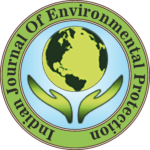IJEP 41(3): 320-324 : Vol. 41 Issue. 3 (March 2021)
M. Natarajan* and T. Hemalatha
Karpagam Academy of Higher Education, Department of Civil Engineering, Coimbatore – 641 021, India
Abstract
Collecting, treating and disposing of a discarded solid material is called solid waste management. Wastes heap up causing problems due to improper waste disposal systems by waste management teams. Biological and physico-chemical problems are caused to the environment due to the solid wastes from companies, like toxic metals, hazardous wastes and chemicals. When hazardous wastes, like pesticides, batteries containing lead, mercury or zinc, e-waste and plastics are mixed up with paper and other scraps, dioxins are produced and causes various diseases like cancer. The hazardous wastes usually mix up with other ordinary garbage and flammable wastes while amassing solid waste thus these results in the risky disposal process. Another waste management method is proposed in Coimbatore City Municipal Corporation as a case study for the reduction of solid waste at compost yard.
Keywords
Solid waste management, Biological problems, physico-chemical problems, Hazardous wastes
References
- Agrawal, A. 2017. Solid waste management of Indore city: A review. Int. Res. J. Eng. Tech., 4(11): 20-25.
- Ahsan, et al. 2014. Assessment of municipal solid waste management system in a developing country. Chinese J. Eng. DOI: 10. 1155/2014/561935.
- Kerstin, H. 2016. The gold in garbage: Implementing a waste segregation and recycling initiative. Assoc. PeriOperative Registered Nurses J., 103(3): 316. DOI: 10.1016/j.aorn.2016.01.014.
- Pinjing, H., et al. 2019. Municipal solid waste (MSW) landfill: A source of microplastics? Evidence of microplastics in landfill leachate. Water Res., 159.
- Paula, M. and A. Joaquin. 2016. Three-year study of fast-growing trees in degraded soils amended with composts: Effects on soil fertility and productivity. J. Env. Manage., 169: 18-26.
- Shivani, W. and M. Arabinda. 2018. Encouraging urban households to segregate the waste they generate: Insights from a field experiment in Delhi, India. Resour. Conserv. Recycling. 134: 239-247.
